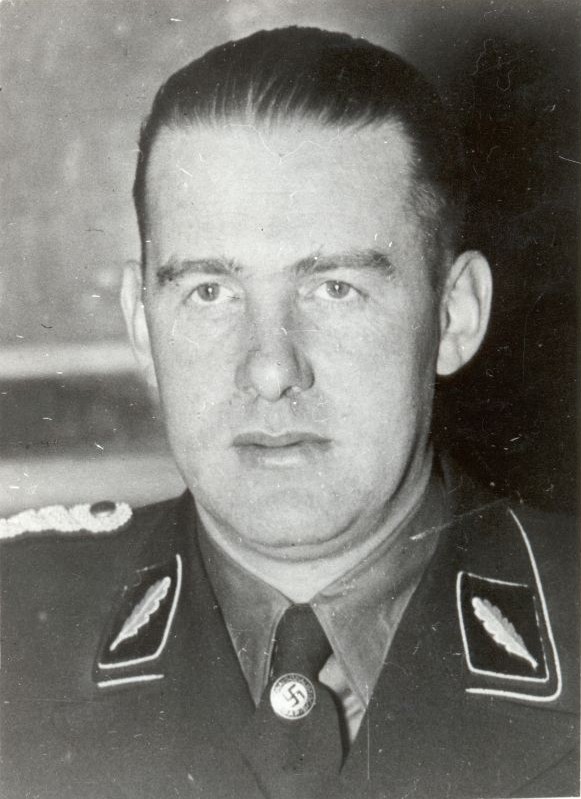Odilo Globocnik was born in 1904 in Trieste, then in the Austro-Hungarian Empire. His father was Slovene and his mother came from a Serbo-Croatian family in Hungary. After the First World War, he settled in Austrian Carinthia, where from the 1930s, he was an active member of the Nazi movement. He owed his position to his close cooperation with the SS and political police commander Heinrich Himmler. In 1938, after the annexation of Austria into Nazi Germany, Globocnik took the position of regional leader (Gauleiter) of the NSDAP in Vienna.
He participated in the German invasion of Poland in September 1939, and in November, he was appointed SS and police commander in the Lublin District, which was part of the General Government. With full commitment and the support of Himmler, Globocnik implemented the Nazi policy, dealing, among others, with the liquidation of the Polish intelligentsia, the construction of a concentration camp near Lublin, and taking control of the Jewish labour force. These activities were the first step in the plans to transform the Lublin region into a ‘bastion of Germanism in the east’. This was directly related to the extermination of the Jewish population and the displacement of Poles. As part of the later persecutions, from November 1942 to August 1943, at least 110,000 inhabitants of the Zamość region were displaced, almost half of whom had to perform forced labour in the Third Reich or concentration camps.
The culmination of Globocnik's career was taking command of Operation Reinhardt, aimed at murdering Jews in the General Government. He supervised the construction of the extermination camps in Bełżec, Sobibór and Treblinka, the functioning of forced labour workshops for Jews, as well as the looting of Jewish property. The operation began on 16 March 1942 with the order to liquidate the Lublin ghetto. As part of Operation Reinhardt, within twenty months, the German forces murdered about two million Jews.
In September 1943, Globocnik took the position of senior SS and police commander in the Operational Zone of the Adriatic Littoral in Trieste. The promotion served to cover up the accusations of financial embezzlement committed in Lublin. With the Allied troops advancing, he fled to Carinthia at the end of April 1945. On 31 May 1945, Globocnik was captured by British soldiers and imprisoned in Paternion, where he committed suicide on the same day. He was buried in an unmarked grave.
